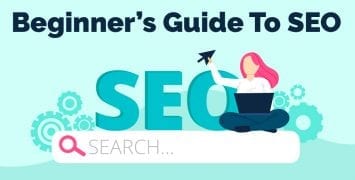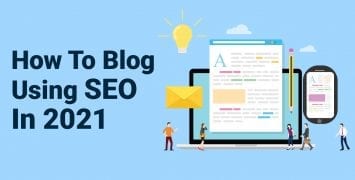If you own a brick-and-mortar business, you might focus on your physical location more than your website.
But your online presence can have a powerful impact on the foot traffic to your store. In fact, every year, an online presence becomes more and more of a necessity for a physical store, no matter where you’re located or what products you sell.
Why is this? The answer is mobile search. Let’s take a look at how you can optimize your site to improve customer traffic for your physical store:
Mobile is More Popular than Ever Before
People are using their smart devices to search for local businesses. Local searches are growing at roughly twice the rate of all other types of mobile searches.
Google and the other major searches have taken notice of these trends. Search engine algorithms tend to favor local businesses for searches in the nearby vicinity.
Over half of all mobile searches are based on location. When people are searching for a specific product or service, they’re often already out of their house and in the community. They want quick answers about where they can find what they’re searching for.
For local searches, they don’t just want to know what you’re selling, they want to know where you are and if you’re open for business.
Optimizing for Local
You’re already optimized your site to draw as much organic traffic as possible. Now you’ll want to optimize it for Google maps. This a separate process than traditional SEO.
Your first step is to claim your listing on Google My Business. You’ll want to fill out your profile completely. Be sure to use only accurate information (Google will penalize you otherwise). This listing is what searchers will see in search and map results.
The NAP info you enter is what Google uses to determine your location. NAP stands for Name, Address and Phone Number. Be sure and include your area code, as search engines use that info, too.
Here’s an important note: Keep your formatting uniform across all your message. This includes every little detail about your street address.
This called citation consistency. If your address is exactly the same everywhere online, from your website to Yelp and everywhere in-between, you’ll rank higher and easier. In fact, “citation inconsistency” is a major reason for ranking penalties.
A quick note about your address on your main website. Don’t put the info inside of a photo or a graphic. If you do, the search engine spiders may not be able to read it.
Photo-Based Design
You’ll want to include high quality photos of both the inside and outside of your business. Exterior shots help reassure searchers that they’re in the right place when they arrive. Remember, they’re likely nearby and looking for you in the real world.
Don’t forget the alt text and image metadata. You can add local info to these tags and help boost your ranking the search engine.
The Pros and Cons of Reviews
Local businesses can be both boosted and harmed by reviews. After all, the people reviewing a local business aren’t some strangers you’ll never meet. They’re your neighbors and members of your community.
If your business has many positive local reviews, that’s great! Unfortunately, even if you do everything right, you’ll still have negative reviews to deal with from time to time. That’s just the nature of the internet.
You can turn a negative review into a positive experience, however. Always remain polite, respond quickly and make every effort to fix the complaint. Check out the Positive Way to Deal with Negative Reviews for plenty of useful tips.
Google Map Ads
Aside from the free strategies, you might also want to use Google Map Ads. These purple labeled ads appear above the organic search results. Your business will also get a purple icon on the Google Map.
Ads appear to searchers using practically any type of Google Map including mobile, tablet and desktop. One exception is any location searches in the main search bar of Google, where the purple icon will only appear to users who click on the More Places links.
Users who are already out on the town are looking for fast answers. They’re also ready to make a purchase. By optimizing your store for local online search, you’ll be directing these potential customer right to your front door.




